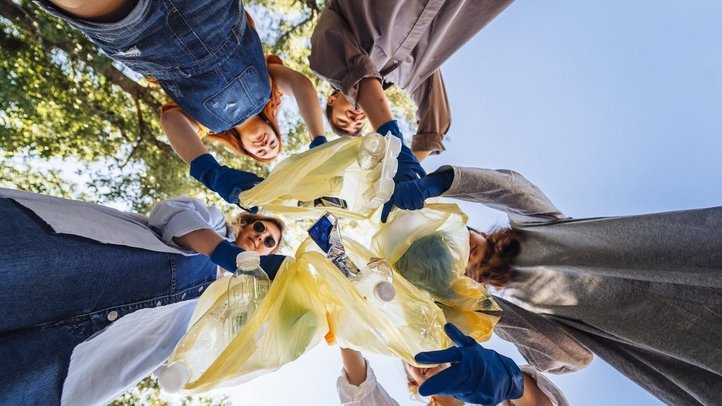Garbage everywhere you look! Tracking down environmental pollution with citizen science
Two of the 34 newly funded Sparkling Science projects are dedicated to the topics of "plastic waste" and "electronic waste". In the Sparkling Science project PLASTIC.ALPS, the team led by glacier researcher Birgit Sattler (University of Innsbruck) is working with school classes to investigate the spread of plastic waste in the high mountains. In his project Recycling Heroes, technology expert Munir Merdan (bee produced) wants to promote the circular economy in the electronics industry through Citizen Science in schools. In a joint interview, the two provide deeper insights into their projects.
Over the years, the two of you have already led several successful Sparkling Science projects, researching a wide variety of topics in biology and technology: glacier melt, microbial life in high mountains, as well as forward-looking semantic technologies and robotics. How did you get the idea to deal with the topic of "plastic waste" or "electronic waste" in your current citizen science projects?
Birgit Sattler: The idea for PLASTIC.ALPS actually arose from a predecessor project COVER.UP from the previous "Sparkling Science" program. At the time, we were investigating the effects of artificial glacier covers to reduce melting on the ecology in snow and ice on a Tyrolean glacier. It was only towards the end of the project that we discovered, when pulling off the fleeces that are laid out on glaciers over a summer season, that the surface suddenly had a plastic fiber covering like fur. In addition, during this preliminary project we also became aware of how much plastic waste high alpine locations are polluted with, especially in tourist regions. It quickly became clear to us that there was a need for action here and that there was still a lot to do in the high mountains.
Munir Merdan: In our case, the four of us founded bee produced GmbH just under two years ago. This is a market-oriented, research-based startup with the first digital B2B marketplace for local electronics manufacturing. Our company provides deep-tech solutions for electronics contract manufacturing problems, such as automated manufacturability testing or selecting suitable manufacturers. Through our previous positive Sparkling Science experiences and successful collaboration with TU Vienna, we jointly saw the responsibility and potential to take up electronics recycling in addition to manufacturing. We see Sparkling Science as an excellent opportunity to advance this socially relevant topic and to anchor it in education.
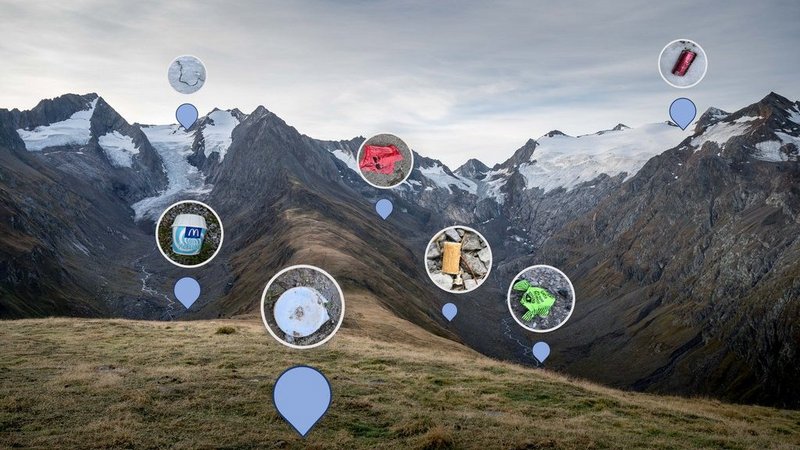
In a nutshell - what are your projects about and how can citizen scientists participate in research?
Munir Merdan: The project "Recycling Heroes" aims to raise awareness about e-waste, especially among students, but also in society in general. To achieve this, the project combines principles of the circular economy with citizen science methods. As citizen scientists, some students are engaged in quantifying household e-waste and designing specific strategies to promote recycling. They develop a comprehensive questionnaire and then analyse the results. In addition, other students are engaged in developing electronic products that can be used in other current citizen science projects, such as a weather station. All students can also identify challenges and potentials for waste minimization and design and implement appropriate solutions. Furthermore, any citizen can support the project by participating in an online survey.
Birgit Sattler: Microplastics are currently an omnipresent topic. The media regularly report on plastic mountains in the sea. However, it shows that microplastics do not stop at the high mountains and manifest themselves in snow and ice. In PLASTIC.ALPS we want to create a basic scientific understanding with students and citizen scientists for the (micro-)plastic pollution in the high mountains via a qualification, quantification and the assignment of their origins and distribution vectors. Citizen scientists (individuals, school classes or families) can actively contribute by using a littering app called "Dreckspotz" to document and categorize litter in the high mountains. Regular challenges for the most entries are carried out. The goal - based on the collected data - is a constructive dialog with politicians, representatives of the cable car industry and NGOs on strategy changes for a sustainable use of glacial habitats in the Alpine region.

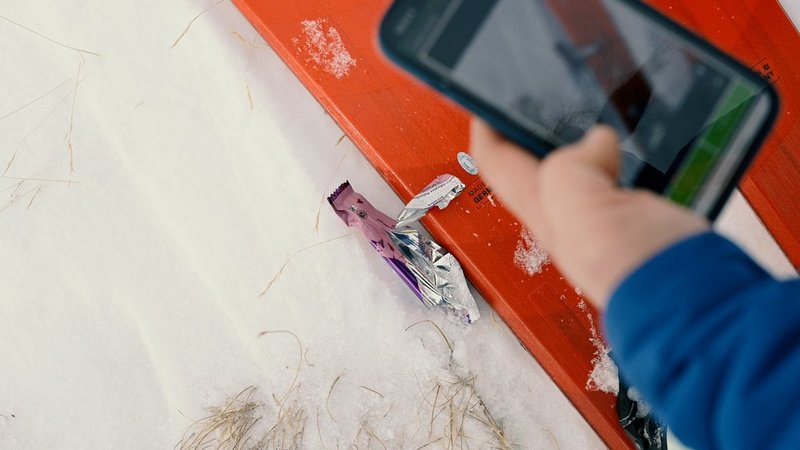
Ms. Sattler, how is the "DreckSpotz" app, with which volunteers collect data on plastic waste in the mountains, received by young and old?
Birgit Sattler: The app already existed before our project and was known to many - also in its application, which is very intuitive and appealing. Through PLASTIC.ALPS, the app could be specifically extended to the topic of high mountains, which is appealing to users. Especially the announced challenges, where it is about the number of entries, are very popular. The most diligent trash spotters also receive material prizes from Patagonia. Teachers support us by creating school class accounts, parents in turn by creating a family account. This helps to raise awareness of the issue among families, which is also one of our goals.

Thanks to Greta Thunberg and the resulting "Fridays for Future" movement, climate protection activism has taken over classrooms worldwide in 2018. To what extent is this awareness of climate change also visible among your students?
Munir Merdan: We have noticed that the need for climate protection has reached the students. Some students are more informed and interested in it than others, but we have seen that in our activities, such as the school projects or workshops, everyone is very motivated and shows their ability and will to promote environmental protection and sustainability and to contribute to the project. Accordingly, we are convinced that more theoretical and practical educational content is needed to further develop awareness and to show how people can responsibly use resources in their daily lives.
Birgit Sattler: We also observe an extremely high acceptance of our scientific topics in schools and the awareness is amazingly high - often even higher than in the parents' generation. We have never been confronted with skeptics. This shows the high level of information of the students. However, the practical application of climate protection is another matter. Climate protection also means sacrifice and hurts a bit in everyday life - I think there is still a lot of room for improvement in the schools (but also in our informed generation). In the current project, for example, the aim is to reduce plastic consumption in everyday life. That's not so easy - even with good will.
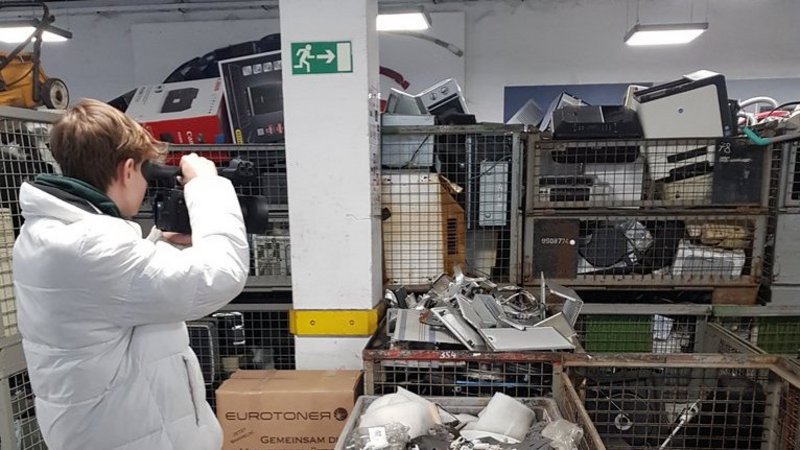
Mr. Merdan, as part of your "Recycling Heroes" project, you made a film with students about electronic waste. What do you have planned for the future with this film?
Munir Merdan: Several videos will be produced as part of the project. They all highlight the importance of e-waste recycling from different angles. They are all 100% based on the ideas and imagination of the students and will be presented on social media channels to raise awareness about e-waste in society. In addition to the videos, we are also very proud of other school projects, such as a sustainable video wall, an online marketplace for e-waste drop-off and pick-up, or an advent calendar with little doors made from old printers. As with the videos, students play a lead role here. More information can be found on the project website.
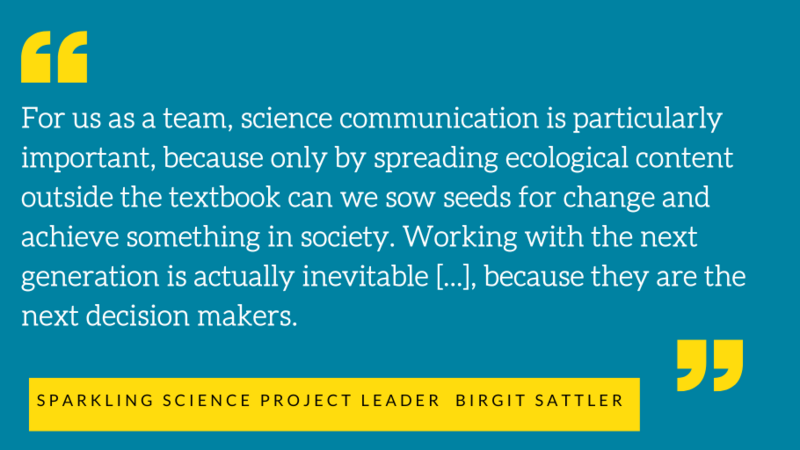
Finally, a question about the Sparkling Science or Sparkling Science 2.0 funding program: What motivates you to keep submitting?
Birgit Sattler: Going to school is always a motivation for us - and honestly also a challenge - to be able or to have to explain complex processes in an understandable way. Conversely, we often get completely different perspectives back from the students - which often enriches our approach to the topic. For us as a team, science communication is particularly important, because only by spreading ecological content outside the textbook can we sow seeds for change and achieve something in society. Working with the next generation is actually inevitable in all matters related to the climate crisis, because they are the next decision makers.
Munir Merdan: As you also said at the beginning, we have known about Sparkling Science for several years and are excited about the program. We think it is an ingenious vehicle for education to address important societal issues in a way and depth that would not be possible in regular classes. It is impressive to see the students' dedication to bringing their own ideas to fruition. For example, the startup "Carefact" emerged from our last Sparkling Science project. As a company, we also see this as a very good opportunity to get to know competent and motivated students and thus perhaps potential employees.
The "PLASTIC.ALPS" project is part of the Citizen Science Awards 2023, a competition for school classes, individuals and families. Participants can join one of eight Citizen Science projects from April 1, 2023 and win cash and non-cash prizes
More information
- Sparkling Science project: PLASTIC.ALPS
- Sparkling Science project: Recycling Heroes
